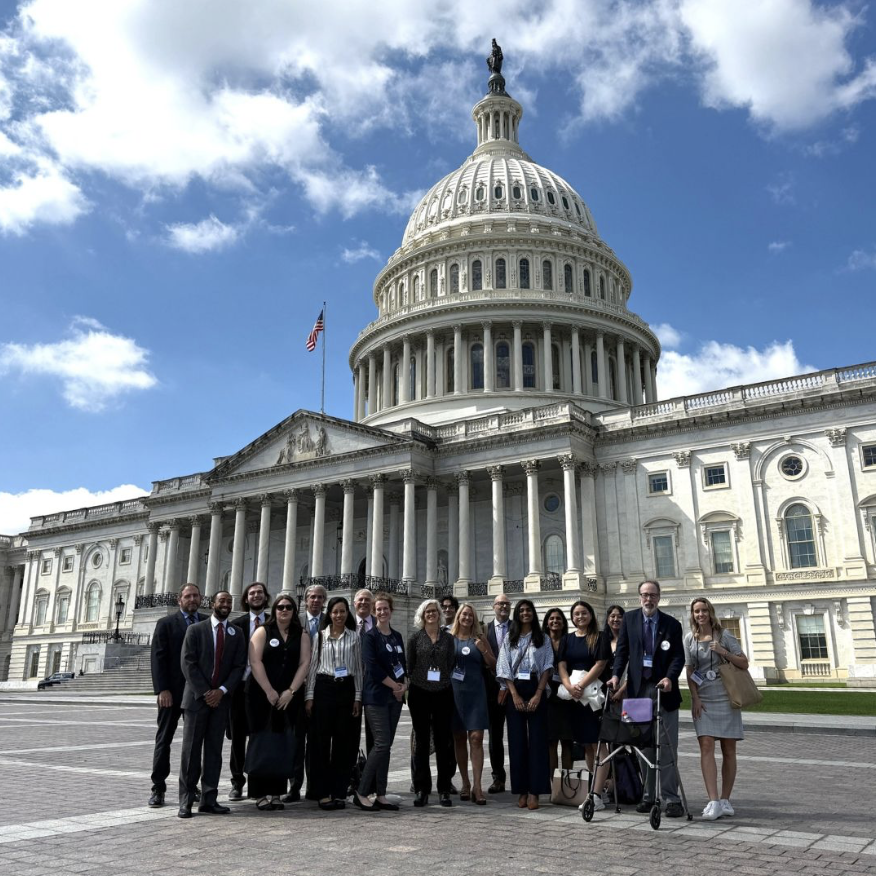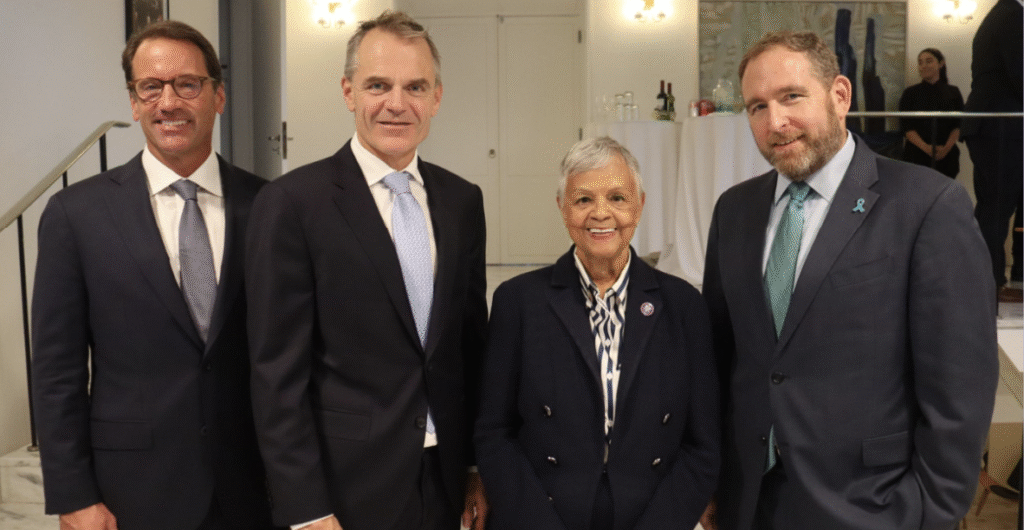Written by Chad Ramsey, Vice President, Policy, Ovarian Cancer Research Alliance
As fall begins, Congress and state legislatures are facing issues with big implications for health care, research, and patient access. Here’s what’s happening now, and how you can help ensure the ovarian and gynecologic cancer community’s voice is heard.
Federal Government Shutdown
Upon returning from its recess, Congress failed to meet a September 30th deadline to fund the federal government for Fiscal Year 2026 and the federal government was shut down. Here’s where things stand:
- In the weeks leading up to the deadline, both the House and the Senate advanced bills that would fund the nation’s health programs, including the National Cancer Institute (NCI) and the Department of Defense’s Ovarian Cancer Research Program (OCRP). Though they differed in funding levels, both bills also proposed modest increases to critical programs at the Centers for Disease Control and Prevention (CDC).
- However, the House and Senate could not come to an agreement on the appropriations bills or a last-minute Continuing Resolution (CR) which would have kept the government open until next month at current funding levels.
- Because the CR failed and there is no budget in place for the 2026 Fiscal Year, the government has gone into shutdown.
What Happens Next?
- Many discretionary federal agencies will be furloughed (i.e. partially shut down). For example, the Department of Health and Human Services (HHS) anticipates furloughing about 41% of its workforce.
- The National Institutes of Health (NIH) and Centers for Disease Control and Prevention (CDC) are also expected to face major disruption in operations, research, grant processing, and oversight.
- By law, mandatory programs (like Social Security, Medicare, Medicaid) will continue, and essential services (e.g., FDA’s core functions) may carry on in a limited capacity.
- But many programs critical to health research, surveillance, and public health communications will be impacted or paused.
Because of this, the gains we had hoped to lock in for cancer research, early detection, and patient support are now under threat. OCRA will continue to advocate vigorously — for full restoration of funding, minimal disruption to research and clinical trials, and protection for patient access.
Update on Telehealth Access
One critically important issue impacted by the shutdown is lapsed flexibility in telehealth access. As of October 1 many of these flexibilities, which were adopted during the Covid-19 pandemic, have expired.
That means:
- Home-based telehealth services may no longer be broadly permitted under Medicare
- Audio-only visits might no longer qualify for reimbursement and geographic restrictions (i.e. only rural areas) may return
- Telehealth visits might again require originating from certified clinical sites rather than patient homes
Some stopgap proposals had tried to extend telehealth protections through November 21, 2025, but those failed to secure final passage before the shutdown.
Even in Medicare coverage, some patients have already found their telehealth eligibility lapsing at midnight October 1.
For patients in the ovarian and gynecologic cancer community, loss of telehealth access could mean missed symptom check-ins, delayed follow-ups, and more travel burdens. OCRA will continue to advocate for telehealth flexibility to be reinstated as soon as possible.
Be Part of the Change: Advocate Leaders Program
Your voice has power and OCRA’s Advocate Leaders Program helps amplify it. We are now accepting applications for our 2026 Advocate Leader cohort through Wednesday, October 29th at 5 pm ET.
No prior advocacy experience is required. If you’re passionate about making an impact, we’ll provide the training, tools, and support to help you speak up for policies that matter to our community.
Apply here to become an Advocate Leader
In Case You Missed It
OCRA recently took part in two important opportunities to advance research at the federal level — joining more than 400 advocates on Capitol Hill for the Rally for Medical Research Hill Day to call for increased NIH funding, and participating in a reception at the Danish Embassy in Washington, D.C., focused on strengthening international collaboration in cancer research and women’s health.


Thank You for Staying Engaged
Whether you’re contacting your members of Congress, sharing our action alerts, or helping raise awareness in your community, your advocacy makes a difference.


